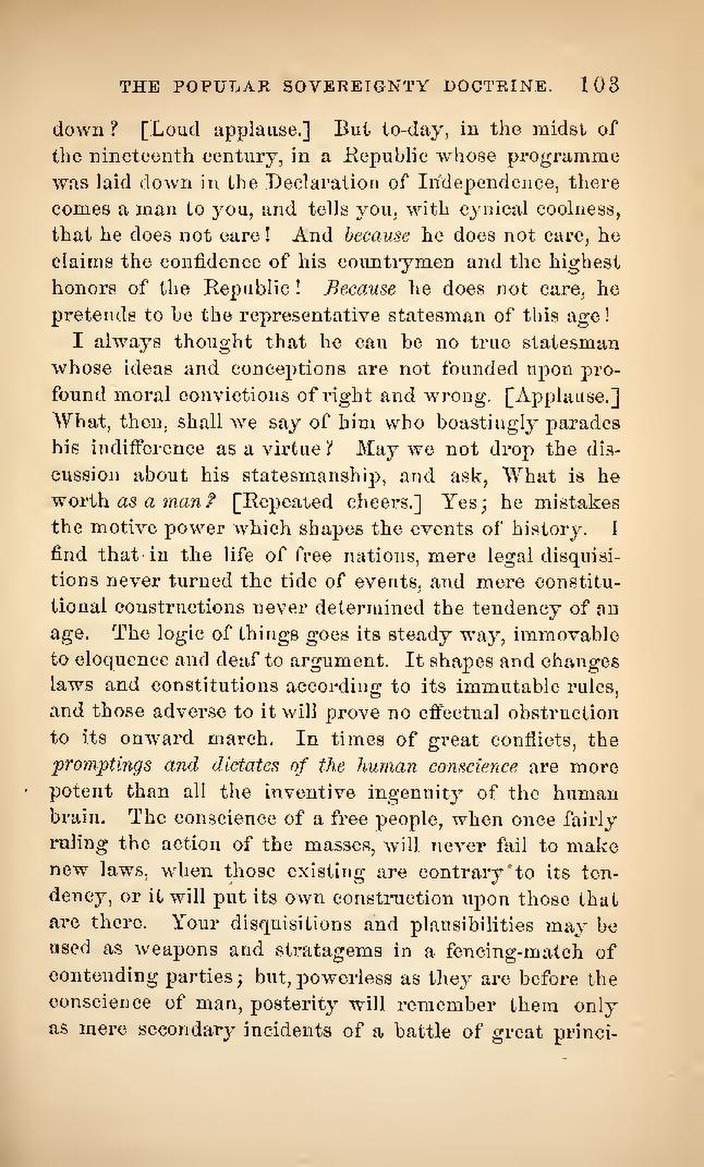down? [Loud applause.] But to-day, in the midst of the nineteenth century, in a Republic whose programme was laid down in the Declaration of Independence, there comes a man to you, and tells you with cynical coolness, that he does not care! And because he does not care, he claims the confidence of his countrymen and the highest honors of the Republic! Because he does not care, he pretends to be the representative statesman of the age!
I always thought that he can be no true statesman whose ideas and conceptions are not founded upon profound moral convictions of right and wrong. [Applause.] What, then, shall we say of him who boastingly parades his indifference as a virtue? May we not drop the discussion about his statesmanship, and ask, What is he worth as a man? [Repeated cheers.] Yes; he mistakes the motive power which shapes the events of history. I find that in the life of free nations mere legal disquisitions never turned the tide of events, and mere constitutional constructions never determined the tendency of an age. The logic of things goes its steady way, immovable to eloquence and deaf to argument. It shapes and changes laws and constitutions according to its immutable rules, and those adverse to it will prove no effectual obstruction to its onward march. In times of great conflicts, the promptings and dictates of the human conscience are more potent than all the inventive ingenuity of the human brain. The conscience of a free people, when once fairly ruling the action of the masses, will never fail to make new laws, when those existing are contrary to its tendency, or it will put its own construction upon those that are there. Your disquisitions and plausibilities may be used as weapons and stratagems in a fencing-match of contending parties; but, powerless as they are before the conscience of man, posterity will remember them only as mere secondary incidents of a battle of great princi-
